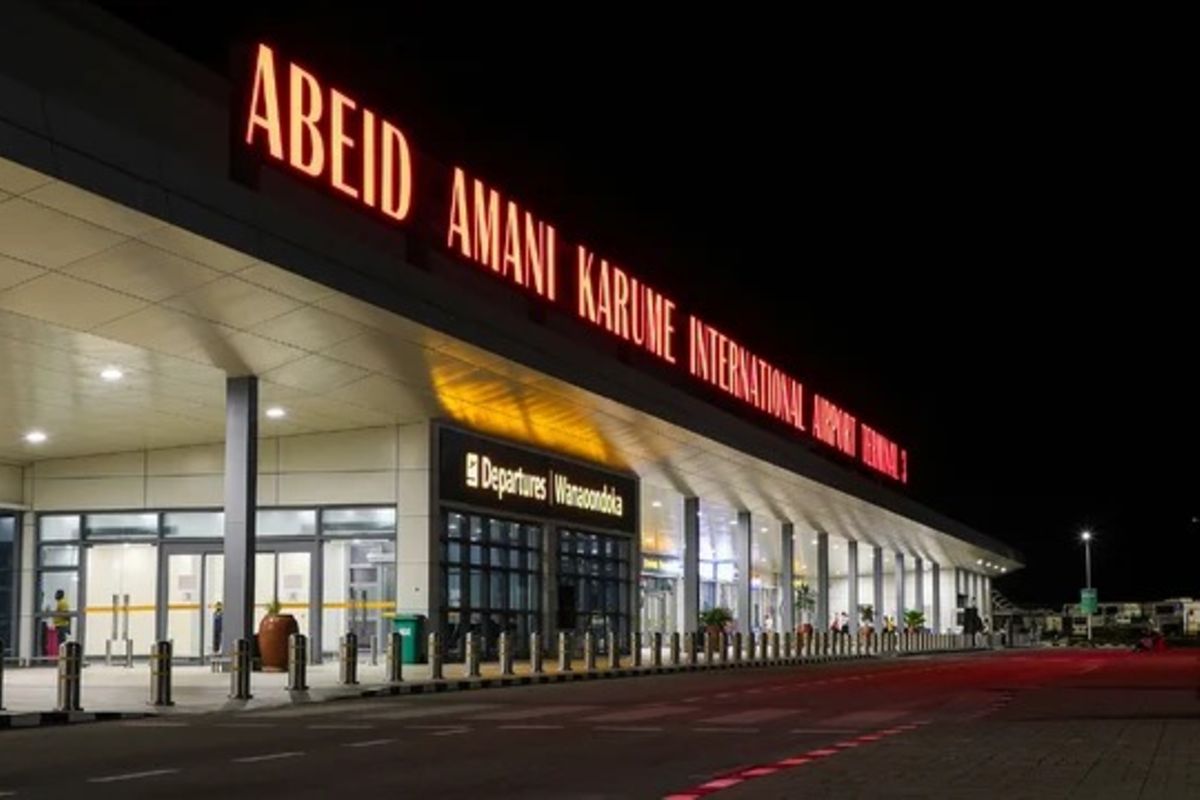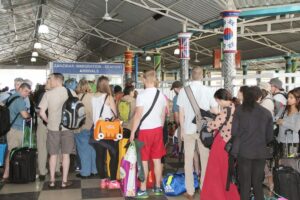
Dar es Salaam. Airlines that have not joined the Zanzibar Airports Authority’s (ZAA) preferred ground handler, Dnata, at the Abeid Amani Karume International Airport (AAKIA) face eviction from the Terminal Three building.
In an email that was sent to international airlines that were yet to comply with the September 14 directive, and are served at the Terminal 3, the authority gave them up to January 15, or shift to the Terminal 2 building.
“I would like to inform you that you are required to make contact with Dnata handling company for continued operations of your flights in Terminal 3,” reads part of the email.
It further stated: “Dnata is the sole ground handler authorised to provide services for flights that operate at Terminal 3.”
The email signed by Aman Hamdun Zubeir, the airport manager further advised the airlines to contact Dnata’s representatives to avoid the inconveniences that may arise.
Airlines have confirmed receiving the email and some have already complied and signed contracts with ZAA’s preferred ground handler at Terminal 3.
However, though there are certain airlines that are ready to move to the Terminal 2 building, a source that spoke to The Citizen on condition of anonymity, says the conditions at the terminal are not attractive at all.
“The conditions at Terminal 2 need to be improved to match international standards for airlines to go there or else they will end up with the preferred ground handler, even if it is against their wishes,” he said.
On September 14, the Zanzibar Airports Authority (ZAA) issued a directive which gave the Dubai based company exclusive access to the new terminal which was constructed at a cost of $120 million.
The order by ZAA, gave ground handling firms at the airport until December 1, 2022 to move to the newly constructed Terminal 3, instructing airlines to make arrangements to work with Dnata.
Several other steps followed the order which included the auditing of the ground handlers in October and a meeting with airlines to fast-track their transitions towards a new ground handler.
Whereas the other two ground handlers were denied access to Terminal 3, Dnata on the other hand can still operate in Terminal 2 as well.
Documents that the press have seen show that ZAT has been operating at the airport for the past 27 years with a concession agreement that runs until 2030 with a client base that features world class airlines, employing over 300 people.
Prior to the order, some of the Airlines that ZAT handled included Etihad, Qatar Airways, Oman Air, Turkish Airlines Lot polish, Air Tanzania, Precision Air, Tui and Ethiopian Airlines.
On the other hand, Transworld, which has been operating at the airport for the past 6 years, had Kenya Airways, Air France, KLM, Edelweiss, and Eurowings as part of its clientele profile.
It is unclear whether the regulator TCCA gave the nod for the changes that are taking place in Zanzibar which many stakeholders maintain break the laws enacted by the authority.
However, even as the ZAA went ahead to implement the order, Tanzania airline operators association (Taoa) say it is contrary to the decision of the board of directors of Tanzania Civil Aviation Authority (TCAA) No. 01 of 2022 which prohibits, among other things, monopolisation and segregation of terminals.
Share this news
This Year’s Most Read News Stories

Tanzania: Samia Hands Over NBC’s 354m/ – Crop Insurance Compensation to Farmers Affected By Hailstorms
President Samia Suluhu Hassan, has handed over a cheque of 354m/- from the National Bank of Commerce (NBC) as compensation to tobacco farmers, who were affected by hailstorms during the previous farming season in various regions across the country.
Handing over the cheque in Dodoma, the compensation is part of the crop insurance service provided by NBC in collaboration with the National Insurance Corporation (NIC).
Furthermore, President Samia has also handed over health insurance coverage to members of the Lindi Mwambao Cooperative Union based in Lindi Region, through the Farmers’ Health Insurance service provided by the bank in partnership with Assurance Insurance Company.
While visiting the bank’s pavilion at the Nanenane Agricultural Exhibition and being received and briefed by the bank’s Managing Director, Mr. Theobald Sabi, she said: “This crop insurance is one of the crucial solutions in ensuring farmers have a reliable income, without fear of challenges such as natural disasters, including hailstorms.
“I call upon all farmers in the country to make the best use of this important opportunity by accessing these kinds of insurance services. I also highly commend NBC and all the stakeholders participating in this programme.”
Elaborating further on the crop insurance service, the Minister of Agriculture, Hussein Bashe, stated that it will help to recover the loss farmers incurred, especially in various calamities beyond their control.
Citing them as floods, fires, and hailstorms, which have significantly affected the well-being of farmers and caused some to be reluctant to invest in the crucial sector, Mr Bashe added: “However, our President, this step by NBC is just the beginning, as this is the second year since they started offering this service, and the results are already visible.

Sign up for free AllAfrica Newsletters
Get the latest in African news delivered straight to your inbox
“As the government, we promise to continue supporting the wider implementation of this service, with the goal of ensuring that this crop insurance service reaches more farmers.”
ALSO READ: NBC participates in TFF 2023/24 awards, promises to enhance competition
On his part, Mr Sabi said that the farmers who benefited from the compensations are from 23 primary cooperative unions in the regions of Shinyanga, Geita, Tabora, Mbeya, Katavi, and Kigoma.
He added: “In addition to these insurance services, as a bank, through this exhibition, we have continued with our programme of providing financial education and various banking opportunities to farmers, alongside offering them various loans, including loans for agricultural equipment, particularly tractors, to eligible farmers.:
At the NBC booth, President Samia also had the opportunity to be briefed on the various services offered by the bank to the farmers namely crop insurance and health insurance services.
There, the President had the chance to speak with some of the beneficiaries of the services, including the Vice-Chairman of the Lindi Mwambao Primary Cooperative Union, Mr. Hassan Mnumbe, whose union has been provided with a health insurance card from the bank.
Source: allafrica.com

Top US investor sells 600m Safaricom shares in dividend protest
An American multinational investment management firm is selling millions of shares held in Safaricom in protest over delays in dividend repatriation amid the fall of the telco’s valuation to below Sh600 billion.Continue Reading

Concerns mount over Zanzibar new $44 travel insurance fee
Tour operators, hoteliers, tourists, and tourism stakeholders are raising alarms over Zanzibar’s new mandatory $44 travel insurance fee, set to take effect on September 1.Continue Reading











